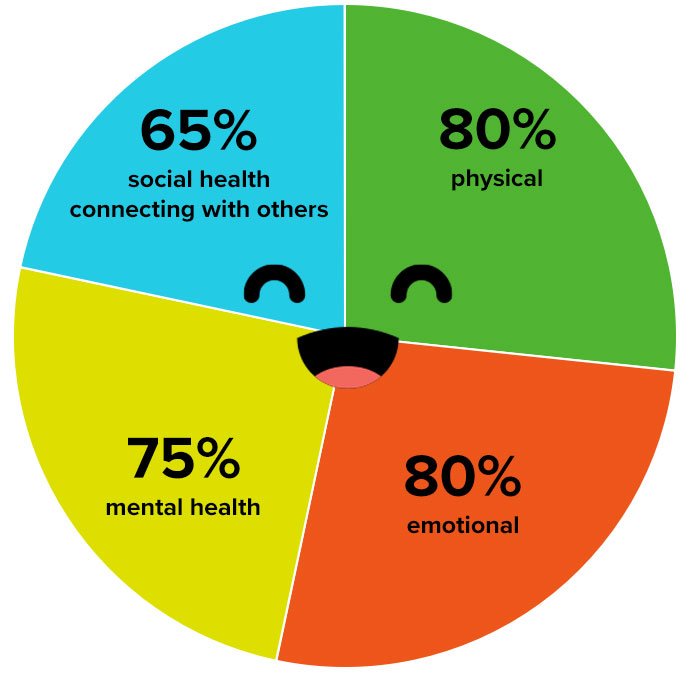The Next Gen of Food Tech
Food and emotions have always been linked. At some point, we’ve all craved the sweet, addictive endorphin hit of chemically manufactured junk food.
But now, some cutting edge brands are taking a different approach. These companies are tapping into consumers’ emotional needs with products that curate specific moods, with the goal of improving overall wellness. It’s giving a whole new meaning to “Food for Thought.”
BY THE NUMBERS:
Consumers are looking for snacks to improve:
This evolution of snacking is particularly strong:
Gen Z vs Milennial:
WHAT’S UP ⬆️:
Food brands focusing products not — or not just — on taste and physical health, but also on how they make a consumer feel and how they can improve mental wellbeing.
Sunbasket: Through a new partnership with Diet ID, this subscription meal service creates personalized food recommendations as well as ongoing tips on behavior changes. Together, the approach aims to support emotional wellness and promote a holistically healthier lifestyle.
myAir Nutrition Bars: Launched in January, this food tech product has a unique premise. Before purchasing, customers take a quiz to determine their emotional needs, and myAir generates a personalized snack bar routine. The bars curate moods like focusing, energizing, calming down, relaxing, and sleeping.
Viome: This health testing company uses AI to analyze an individual’s gut biology. Based on the results, Viome offers personalized food plans and made-to-order supplements that address both physical and emotional well being. These regimens can cater to improving energy level, anxiety, and trouble sleeping.
Unwind Bars: Meant to be eaten as a bedtime snack, these include ingredients that promote better sleep, such as melatonin, chamomile, and the amino acid l-theanine. Unwind pairs these bars with a content series, Relax Hacks, that features yoga, meditation, and even sleep stories.
WHAT’S DOWN ⬇️:
In an era where food can specifically target positive emotions in a healthy way, we’re associating it less with negative feelings like guilt, chemical addictiveness, or behaviors like stress eating and binge eating.
WHAT’S NEXT ➡️:
| D Disruption |
Back to that Gen Z stat, what does it mean when an entire generation views food fundamentally differently than previous ones? The way it’s marketed and consumed is going to change. At minimum, we can expect many more food and drink companies to become lifestyle brands — think LaCroix, Red Bull or White Claw, but centered around emotional wellness. |
| I Innovation |
It’s been a stressful two years, to say the least. No wonder one of the major innovations today is brands promising stress relief, like Recess and Kalm. Other enterprising food and drink companies will be smart to incorporate products infused with ingredients like CBD, hemp, or kava. |
| P Polarization |
A lot of mental health professionals are reading all this and screaming internally. None of these products are meant to be a replacement for a psychologist or psychiatrist, but that won’t stop some people from using them instead of getting the help that they need, rather than in addition to it. Honey, you’re not depressed because Mercury is in retrograde, go to therapy! | S Stickiness |
On the other hand, there’s something really exciting about businesses destigmatizing mental health. Take PYM Mood Chews , which contain amino acids that manage anxiety by targeting the body’s hormone levels. But what’s really memorable is the story behind it: the company’s CEO co-founded PYM to help alleviate his own mental health struggles after his father died by suicide. I’m not crying, you’re crying! |
| S Social Impact |
Will these products bring on a larger shift in how we view food and wellbeing? We can see them ushering in a new era of body positivity, mental health awareness, and accessibility to wellness resources. Or we can see a Starbucks-ification of these types of products, where they become more of a status symbol than anything else. |



